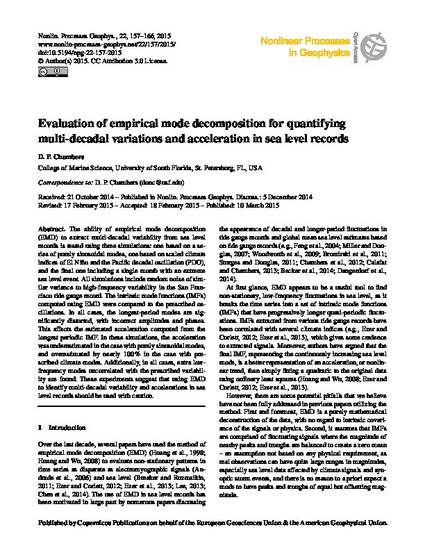
The ability of empirical mode decomposition (EMD) to extract multi-decadal variability from sea level records is tested using three simulations: one based on a series of purely sinusoidal modes, one based on scaled climate indices of El Niño and the Pacific decadal oscillation (PDO), and the final one including a single month with an extreme sea level event. All simulations include random noise of similar variance to high-frequency variability in the San Francisco tide gauge record. The intrinsic mode functions (IMFs) computed using EMD were compared to the prescribed oscillations. In all cases, the longest-period modes are significantly distorted, with incorrect amplitudes and phases. This affects the estimated acceleration computed from the longest periodic IMF. In these simulations, the acceleration was underestimated in the case with purely sinusoidal modes, and overestimated by nearly 100% in the case with prescribed climate modes. Additionally, in all cases, extra low-frequency modes uncorrelated with the prescribed variability are found. These experiments suggest that using EMD to identify multi-decadal variability and accelerations in sea level records should be used with caution.
Nonlinear Processes in Geophysics, v. 22, issue 2, p. 157-166
Available at: http://works.bepress.com/don_chambers/19/
